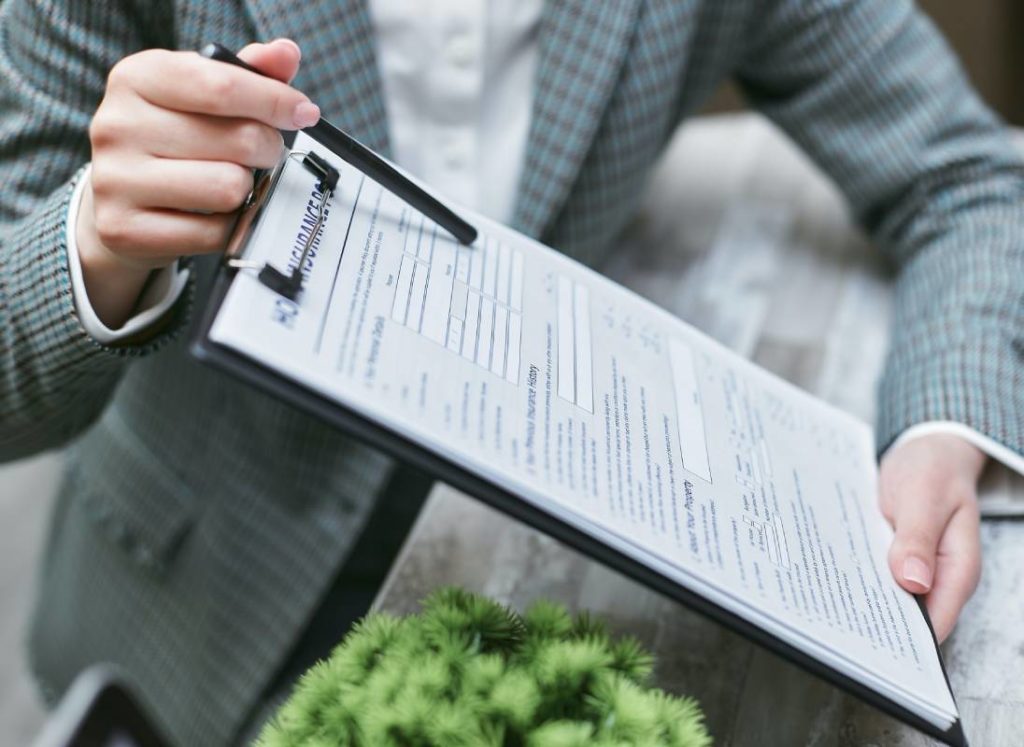The mortgage application process can sometimes feel overwhelming, especially if you are a first-time home buyer. Buying a home is the biggest purchase most people make in their lifetimes, and the path to home ownership may feel daunting. There are specific steps to getting approved for a mortgage loan, starting before you even begin looking for your dream home. Having all of your paperwork together can help make the process run more smoothly. Not every mortgage company will ask you for the exact same documentation, but most lenders have similar requirements. Having your paperwork in order can help you feel more confident and expedite your approval process.

The first thing to familiarize yourself with when applying for a mortgage loan is the process itself, beginning with pre-approval – when you find out how much money you qualify to borrow – and ending when you finally close and officially own your own home!
Pre-Approval happens before house hunting even begins. The mortgage lender will look over all of your finances to determine whether or not you qualify for a home loan, and how much you are qualified to borrow.
Underwriting is the process during which the loan application and other documents are carefully reviewed to make sure that both the you and the property meet the necessary requirements and guidelines.
Conditional Approval is sometimes issued by the underwriter to designate that your paperwork looks good so far. (More documents are typically required at this stage.)
Closing is the final step! All of the documents have been prepped, reviewed and finalized, and you can attend closing and finish up the home buying process!
All of the above steps may have their own document requirements. When in doubt it is best to have as much information gathered as possible — It’s always better to have something you don’t need than to need something you don’t.
When applying for a home mortgage loan, you will definitely need:
The social security numbers of all borrowers listed on the mortgage loan. Have your social security card or official documents with your SSN handy. The mortgage lender will use your social security number to verify your identity, pull your credit reports and request your tax returns.
Proof of income and proof of employment. Expect to provide proof of your past two years employment at minimum, including your employer’s contact information for verification. You will also be asked to show at least your past two pay stubs. The lender will use these items to verify your annual income.
Tax documentation. Your mortgage lender will want to see your W-2s and tax returns for the past two years. They may also request your tax transcripts directly from the IRS.
Proof of place of residence.
Statements for all bank accounts. Be prepared to provide statements for every checking, savings, and any money market accounts.
Credit information. Just like your banking info, your credit card statements help give your lender a better idea of your financial health, debt-to-income ratio and ability to repay the loan.
Purchase agreement, also known as the real estate contract. This is your signed contract with the seller, and you’ll need to provide a copy of this contract to the lender. Your lender will ask for this document prior to underwriting, after you have found a house and made an offer. This contract verifies the amount you have agreed to pay for the house.
When applying for a home mortgage loan, you may need:
List of monthly expenses. Many lenders will ask for an itemized list of monthly expenses in order to help them build a picture of your debt-to-income ratio and your ability to repay the loan.
Gift letters. Families sometimes provide help covering a down payment. A gift letter helps the lender verify that this money is in fact a gift, and not expected to be paid back down the line.
Divorce information, including records of child support and/or alimony payments.
Confirmation of bankruptcies or foreclosures in the past 7 years.
Confirmation of any other loans that you are a signer or co-signer on.
Confirmation of any lawsuits you are involved in.
If you are self-employed you will likely be asked to furnish additional income information, including balance sheets, profit and loss statement, and/or federal tax statements.
If you receive retirement or disability income you will likely be asked to provide (if applicable) your pension award letter, social security award letter, permanent disability award letter, and recent retirement account statement.
